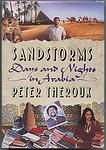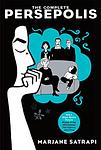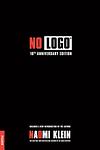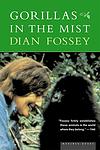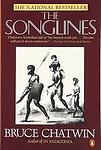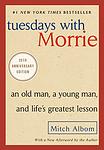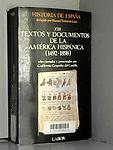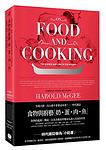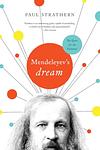The Greatest "Nonfiction" Books Since 1980
Click to learn how this list is calculated.
This list represents a comprehensive and trusted collection of the greatest books. Developed through a specialized algorithm, it brings together 300 'best of' book lists to form a definitive guide to the world's most acclaimed books. For those interested in how these books are chosen, additional details can be found on the rankings page.
Genres
Countries
Date Range
Reading Statistics
Click the button below to see how many of these books you've read!
Download
If you're interested in downloading this list as a CSV file for use in a spreadsheet application, you can easily do so by clicking the button below. Please note that to ensure a manageable file size and faster download, the CSV will include details for only the first 500 books.
Download-
126. Sandstorms by Peter Theroux
"Sandstorms" is a compelling narrative that explores the intricate cultural and political landscapes of the Middle East. Through a series of interconnected stories and personal journeys, the book delves into the lives of individuals caught in the region's tumultuous sandstorms of change and conflict. The author offers a vivid portrayal of the Middle East's diverse societies, examining the impact of historical legacies and modern challenges on the people who navigate the shifting sands of identity, loyalty, and survival. With a keen eye for detail and a deep understanding of the region's complexities, the narrative provides a thought-provoking glimpse into the heart of a world often misunderstood by outsiders.
-
127. Persepolis Two by Marjane Satrapi
This graphic novel continues the story of a young girl growing up in Iran during the Islamic Revolution. After being sent to Europe for her safety, she struggles with feeling out of place and longs for her homeland. Eventually, she returns to Iran, only to find it vastly different from the place she remembered. The book explores themes of identity, culture, and the effects of political upheaval on a personal level.
-
128. Grid Systems In Graphic Design by Josef Müller-Brockmann
This book is a seminal guide to graphic design and typographic composition, focusing on the use of grid systems as a foundational tool for ensuring visual coherence and hierarchy across various design projects. It provides designers with a methodical approach to organizing text and images in a clean, logical, and aesthetically pleasing manner. Through systematic arrangement, the grid serves as an essential framework that can be applied to a wide range of design work, from print media to digital interfaces. The book delves into the principles, applications, and benefits of grid systems, offering practical advice, examples, and clear illustrations to help designers harness the power of grids to create effective, impactful visual communications.
-
129. No Logo by Naomi Klein
This book explores the negative effects of corporate branding and globalization. It critiques the marketing strategies of large corporations, arguing that they exploit workers and manipulate consumers. The author also discusses how these corporations have a significant influence on culture and public space. The book suggests that consumer activism and grassroots movements can serve as effective counter-forces to corporate power.
-
130. Gorillas In The Mist by Dian Fossey
This book is a remarkable account of an eminent primatologist's thirteen-year study and close encounters with the mountain gorillas of the African rainforest. The author immerses herself in the lives of these majestic creatures, observing their complex social structure, behaviors, and interactions. Through her passionate and dedicated research, she develops a deep bond with the gorillas, gaining unprecedented acceptance by the animals and a unique insight into their world. The work also highlights the threats to the gorillas' survival, primarily from poaching and habitat destruction, and the author's relentless efforts to protect these magnificent animals and their environment.
-
131. The Songlines by Bruce Chatwin
The book is a semi-fictional account of the author's journey through the Australian Outback, where he explores the culture of the Aboriginal people, particularly their concept of 'Songlines' - invisible pathways that crisscross Australia, ancient tracks connecting communities and following the journeys of ancestral spirits. As he travels, he delves into the nomadic way of life, the idea of walking as a spiritual practice, and the deep connection between the Aboriginal people and the land. The narrative is interspersed with philosophical discussions on topics like nomadism, anthropology, history, travel, and the nature of human restlessness.
-
132. Hunger of Memory by Richard Rodriguez
"Hunger of Memory" is a memoir that explores the complexities of assimilation and cultural identity. The author recounts his journey as a child of Mexican immigrants growing up in America, detailing his struggles to balance his Mexican heritage with his American surroundings. From learning English in a Roman Catholic school to earning a PhD from an Ivy League university, the author grapples with feelings of alienation and the loss of his private identity, prompting a deep examination of what it means to be an "American."
-
133. Tuesdays With Morrie by Mitch Albom
The book is a poignant memoir that recounts the series of visits the author makes to his former sociology professor, who is dying from amyotrophic lateral sclerosis (ALS). Through weekly meetings every Tuesday, the professor imparts wisdom on various aspects of life such as love, work, community, family, aging, and death. These conversations, rich with emotional depth and life lessons, transform into a final "class" on the meaning of life, where the professor's insights and experiences serve not only as a guide for the author but also offer profound lessons for the readers about the importance of human connection, compassion, and living a life filled with purpose.
-
134. In Xanadu by William Dalrymple
"In Xanadu" is a travelogue that follows the journey of a young historian and writer as he retraces Marco Polo's route from Jerusalem to the fabled city of Xanadu in Mongolia. Along the way, the author weaves together a rich tapestry of history and adventure, engaging with diverse cultures and landscapes. His travels take him through the Middle East, South Asia, and into the heart of China, offering insights into the complex interplay between past and present, and the enduring allure of one of history's most legendary journeys. The narrative is as much a personal coming-of-age story as it is a homage to the spirit of exploration and discovery.
-
135. The Invention of Solitude by Paul Auster
"The Invention of Solitude" is a deeply personal and introspective memoir split into two parts, where the author grapples with the concepts of identity, memory, and solitude. The first part focuses on the author's reflections and memories of his late father, while the second part delves into the author's own experience of fatherhood, his life, and his thoughts. The book explores themes of existentialism, the nature of writing, and the complex dynamics of parent-child relationships.
-
136. The Forever War by Dexter Filkins
"The Forever War" is a non-fiction account of the conflicts in Afghanistan and Iraq from a journalist's perspective. The author, who was embedded with American troops, provides a raw and unfiltered look at the realities of war. The book gives a detailed description of the experiences of soldiers, civilians, and the author himself, offering a unique perspective on the ongoing conflicts. It explores the complexities and consequences of war, and the impact it has on those directly involved and the wider world.
-
137. América Hispánica: (1492-1898) by Guillermo Céspedes del Castillo
"América Hispánica: (1492-1898)" is a comprehensive historical analysis of Hispanic America from the time of Christopher Columbus's first voyage in 1492 to the end of Spanish rule in 1898. The author meticulously details the exploration, conquest, and colonization of the Americas, the establishment of Spanish rule, the socio-economic structures, and the eventual struggles for independence. The book offers a deep understanding of the complex and often turbulent history of Hispanic America during this period.
-
138. Kaffir Boy by Mark Mathabane
This autobiography tells the story of a young boy growing up in apartheid-era South Africa. Despite enduring extreme poverty, brutal police raids, and constant racial discrimination, the protagonist manages to escape his harsh reality through education and tennis. His determination and resilience eventually lead him to receive a scholarship to an American university, providing him a chance to escape the oppressive system of apartheid.
-
139. Bad Blood by Lorna Sage
"Bad Blood" is a memoir about a woman's escape from a repressive childhood in post-WWII Britain. The author recounts her experiences growing up in a dysfunctional family with a philandering vicar for a grandfather and a depressed and distant mother. Despite the bleak surroundings, she manages to find solace in literature and education, ultimately earning a scholarship to university. The book is a testament to the transformative power of education and the author's fierce determination to escape her past.
-
140. On Food and Cooking: The Science and Lore of the Kitchen by Harold McGee
This book is an in-depth exploration of the science and history behind various culinary techniques and ingredients. It provides readers with a comprehensive understanding of how and why certain cooking processes work, from the chemical reactions involved in baking to the origins of different food traditions. The book also delves into the nutritional value of foods, offering insights into how different preparation methods can impact health. It's a must-read for anyone interested in the science of cooking and the cultural significance of food.
-
141. Pornography by Andrea Dworkin
The book is a radical feminist examination of the pornography industry and its effects on society. The author argues that pornography dehumanizes women by objectifying them and glorifying male dominance and violence. She delves into the ways in which porn perpetuates misogyny and contributes to the widespread culture of sexual violence against women. The work is a provocative critique that challenges the notion of pornography as a benign form of adult entertainment, instead positioning it as a fundamental issue of women's rights and social justice.
-
142. The Closing of the American Mind by Allan Bloom
The book is a critique of the contemporary American educational system, particularly in universities. The author argues that the rise of relativism and the decline of the humanities have led to a crisis in American education, with students becoming less able to think critically and more prone to moral and intellectual confusion. The book also discusses the impact of popular culture and political movements on education, and argues for a return to a more traditional, classical education.
-
143. Outliers by Malcolm Gladwell
The book examines the factors that contribute to high levels of success. Through a compilation of anecdotes and analyses of various cultural phenomena, it argues that success is not simply a result of individual talent or intelligence, but rather the result of a combination of opportunities, hidden advantages, cultural legacies, and the amount of time spent practicing a specific task. The author challenges the traditional notion of the "self-made" individual by emphasizing the importance of external influences and timing, such as being born in a certain era or having access to specific resources, in shaping one's ability to achieve extraordinary accomplishments.
-
144. Mendeleyev's Dream by Paul Strathern
This book traces the history of chemistry from the ancient philosophers' wild speculations about the composition of the universe to the creation of the periodic table by Dmitri Mendeleyev. Through a blend of storytelling and science, it explores the development of atomic theory and chemical elements, leading up to Mendeleyev's groundbreaking dream in which he envisioned the periodic table in its modern form. The narrative delves into the lives and discoveries of key figures in the field of chemistry, illustrating how their work contributed to our understanding of the elements that make up the world around us.
-
145. A Midwife's Tale by Laurel Thatcher Ulrich
"A Midwife's Tale" is a historical account of a midwife's life in the late 18th and early 19th centuries, based on her detailed diary entries. The book offers a unique perspective on the daily life, medical practices, and social and economic conditions of the time, while highlighting the significant role that women played in the community, despite their limited rights and opportunities. The narrative also provides a rare insight into the realities of childbirth and women's health during this period.
-
146. Common Ground by J. Anthony Lukas
"Common Ground" is a non-fiction book that provides an in-depth examination of racial tensions in Boston, Massachusetts during the 1960s and 1970s, primarily focusing on the controversial issue of court-ordered busing to integrate public schools. The narrative follows three families - one African-American, one Irish-American, and one Yankee - to depict the effects of these tensions on the city's different communities. The book also explores the historical, political, and social context of these events, offering a comprehensive analysis of a critical period in American history.
-
147. Systematic Theology by Wolfhart Pannenberg
"Systematic Theology" is a comprehensive exploration of Christian doctrine from the perspective of a renowned German theologian. It delves into the nature of God, the creation of the universe, and the essence of humanity, among other topics. The author's approach is unique in that he uses historical and scientific knowledge to interpret and explain Christian beliefs, making this a significant contribution to modern theological thought.
-
148. Dr. Johnson & Mr. Savage by Richard Holmes
This book delves into the complex friendship between the 18th-century literary figure Samuel Johnson and the enigmatic poet Richard Savage. It explores the profound influence they had on each other's lives and works, set against the backdrop of London's vibrant and often sordid literary scene. The narrative weaves a tale of two men from vastly different backgrounds who form an unlikely bond, with Johnson becoming fascinated by Savage's scandalous history and the mysteries surrounding his true identity. Through their association, the book examines themes of authorship, friendship, and the struggles of the creative life, while also painting a rich picture of the society they navigated.
-
149. The 9/11 Commission Report by 9/11 Commission
This book is a comprehensive, detailed account of the events leading up to the September 11, 2001 terrorist attacks on the United States, the attacks themselves, and the immediate aftermath. It was compiled by a bipartisan commission and offers an in-depth analysis of the systemic failures that allowed these attacks to occur. The report also provides recommendations for preventing future terrorist attacks, emphasizing the need for improved intelligence and security measures.
-
150. Personal History by Katharine Graham
"Personal History" is an autobiography of a woman who inherited a media empire, The Washington Post, following her husband's suicide. The book explores her journey from a privileged yet sheltered upbringing to leading one of the most influential newspapers in the United States. It provides an intimate look into her personal life, including her struggles with self-confidence and her role in the coverage of significant historical events such as the Pentagon Papers and the Watergate scandal.
Reading Statistics
Click the button below to see how many of these books you've read!
Download
If you're interested in downloading this list as a CSV file for use in a spreadsheet application, you can easily do so by clicking the button below. Please note that to ensure a manageable file size and faster download, the CSV will include details for only the first 500 books.
Download